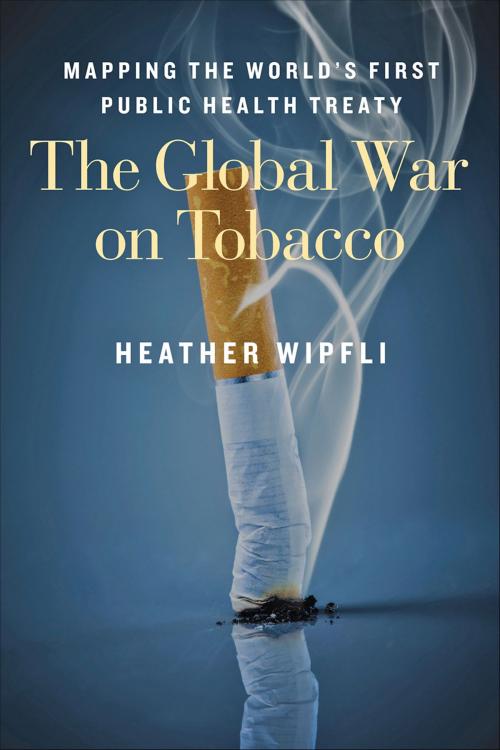The Global War on Tobacco
Mapping the World's First Public Health Treaty
Nonfiction, Health & Well Being, Medical, Reference, Health Policy, Public Health| Author: | Heather Wipfli | ISBN: | 9781421416847 |
| Publisher: | Johns Hopkins University Press | Publication: | July 31, 2015 |
| Imprint: | Language: | English |
| Author: | Heather Wipfli |
| ISBN: | 9781421416847 |
| Publisher: | Johns Hopkins University Press |
| Publication: | July 31, 2015 |
| Imprint: | |
| Language: | English |
The tobacco industry has capitalized on numerous elements of globalization—including trade liberalization, foreign direct investment, and global communications—to expand into countries where effective tobacco control programs are not in place. As a consequence, tobacco is currently the leading cause of preventable death in the world. Each year, it kills more people than HIV, malaria, and tuberculosis combined.
Amid evidence of an emerging pandemic, a committed group of public health professionals and institutions sought in the mid-1990s to challenge the tobacco industry’s expansion by negotiating a binding international law under the auspices of the World Health Organization. The WHO Framework Convention on Tobacco Control (FCTC)—the first collective global response to the causation of avoidable chronic disease—was one of the most quickly ratified treaties in United Nations history. In The Global War on Tobacco, Heather Wipfli tells the engaging story of the FCTC, from its start as an unlikely civil society proposal to its enactment in 178 countries as of June 2014. Wipfli also reveals how globalization offers anti-tobacco advocates significant cooperative opportunities to share knowledge and address cross-border public health problems.
The book—the first to delve deeply into the origin and development of the FCTC—seeks to advance understanding of how non-state actors, transnational networks, and international institutionalization can impact global governance for health. Case studies from a variety of diverse high-, middle-, and low-income countries provide real-world examples of the success or failure of tobacco control. Aimed at public health professionals and students, The Global War on Tobacco is a fascinating look at how international relations is changing to respond to the modern global marketplace and protect human health.
The tobacco industry has capitalized on numerous elements of globalization—including trade liberalization, foreign direct investment, and global communications—to expand into countries where effective tobacco control programs are not in place. As a consequence, tobacco is currently the leading cause of preventable death in the world. Each year, it kills more people than HIV, malaria, and tuberculosis combined.
Amid evidence of an emerging pandemic, a committed group of public health professionals and institutions sought in the mid-1990s to challenge the tobacco industry’s expansion by negotiating a binding international law under the auspices of the World Health Organization. The WHO Framework Convention on Tobacco Control (FCTC)—the first collective global response to the causation of avoidable chronic disease—was one of the most quickly ratified treaties in United Nations history. In The Global War on Tobacco, Heather Wipfli tells the engaging story of the FCTC, from its start as an unlikely civil society proposal to its enactment in 178 countries as of June 2014. Wipfli also reveals how globalization offers anti-tobacco advocates significant cooperative opportunities to share knowledge and address cross-border public health problems.
The book—the first to delve deeply into the origin and development of the FCTC—seeks to advance understanding of how non-state actors, transnational networks, and international institutionalization can impact global governance for health. Case studies from a variety of diverse high-, middle-, and low-income countries provide real-world examples of the success or failure of tobacco control. Aimed at public health professionals and students, The Global War on Tobacco is a fascinating look at how international relations is changing to respond to the modern global marketplace and protect human health.















